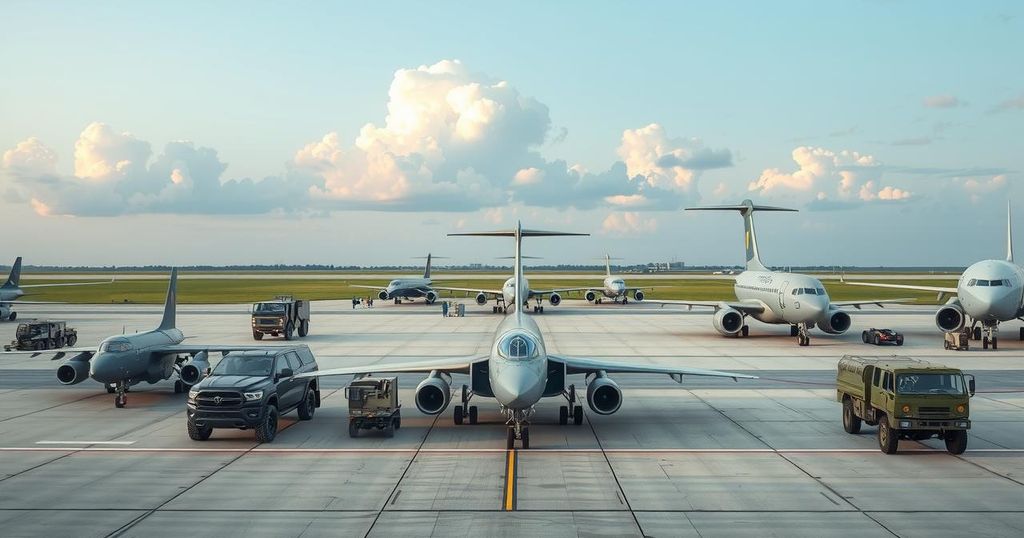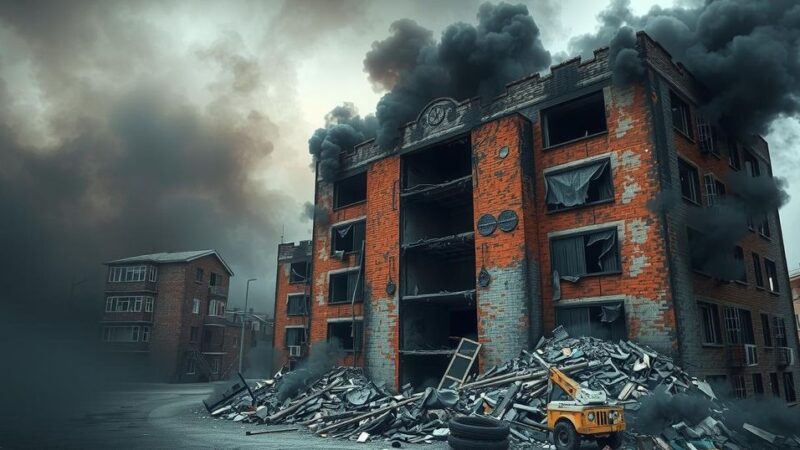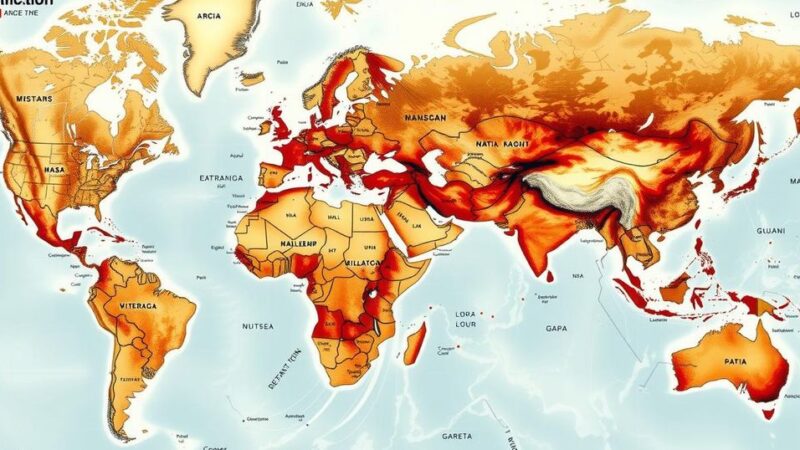The Sudanese army has recaptured Khartoum airport from the RSF and has begun surrounding their positions. Following a series of military victories, the army appears to be on the verge of securing greater control of the capital. The conflict has led to significant humanitarian crises, with millions displaced and numerous human rights abuses documented.
The Sudanese army announced that it has successfully recaptured Khartoum airport from the Rapid Support Forces (RSF) and surrounded them south of the capital. This development marks a significant gain for the army, which has been engaged in conflict with the RSF since April 2023. Army spokesman Nabil Abdallah confirmed that the airport was now “fully secured” from the paramilitary fighters, who had occupied the facility.
This military victory follows a devastating airstrike attributed to the army, which reportedly resulted in the deaths of at least 270 individuals in a market in western Darfur. After retaking the presidential palace a few days prior, the army has made substantial advances in central Khartoum, reclaiming key state institutions initially captured by the RSF.
A military source indicated that army forces have surrounded the strategic Jebel Awliya area from multiple directions and are successfully advancing on all fronts. He noted that remnants of the RSF militia are attempting to flee the area via the Jebel Awliya bridge, the sole crossing available, connecting to positions in Darfur to the west.
Eyewitness reports indicate that RSF fighters are retreating southwards towards Jebel Awliya. The RSF has not provided a response to these developments. The ongoing conflict, which began in April 2023, has led to a catastrophic humanitarian situation, displacing over 12 million people and resulting in tens of thousands of fatalities.
The war has split Sudan, with the army controlling the east and north while the RSF dominates nearly all of Darfur and parts of the south. After facing significant setbacks last year, the army has progressively regained territory, pushing into central Sudan towards Khartoum. They appear poised to take greater control of the capital, especially after relocating the government to Port Sudan early in the conflict.
UN estimates reveal that over 3.5 million individuals have fled Khartoum amid the ongoing violence, while many others remain trapped, suffering from hunger and continued assaults on their residences by both factions. Reports from social media indicate celebrations among central Khartoum residents at the RSF’s withdrawal, with individuals expressing their relief and hope.
Residents, such as Osama Abdel Qader from the Sahafa neighbourhood, reported the absence of RSF forces in their area and noted instances of fighters abandoning occupied homes, often taking furniture with them. The RSF has faced allegations of looting and occupying civilian residences since the war commenced, with various rights organizations documenting severe human rights abuses including sexual violence.
In response to these atrocities, the United States has imposed sanctions on army chief Abdel Fattah al-Burhan and RSF commander Mohamed Hamdan Daglo, the latter being specifically accused of genocide in Darfur. The United Nations has raised alarm over ongoing civilian attacks, particularly condemning a recent airstrike in North Darfur and an RSF attack on a mosque in Khartoum. Analysts have cautioned against the RSF’s tendency to retaliate against civilians, while the army has similarly been criticized for its alleged failure to protect civilians who are perceived as RSF collaborators.
The Sudanese army’s recapture of Khartoum airport signifies a crucial turning point in its ongoing battle against the RSF. While advancing through the capital and securing vital state institutions, the army faces grave humanitarian challenges stemming from the war. Reports of civilian celebrations contrast sharply with the violence and displacement endured by millions, underscoring the urgent need for accountability and humanitarian assistance.
Original Source: www.rfi.fr






